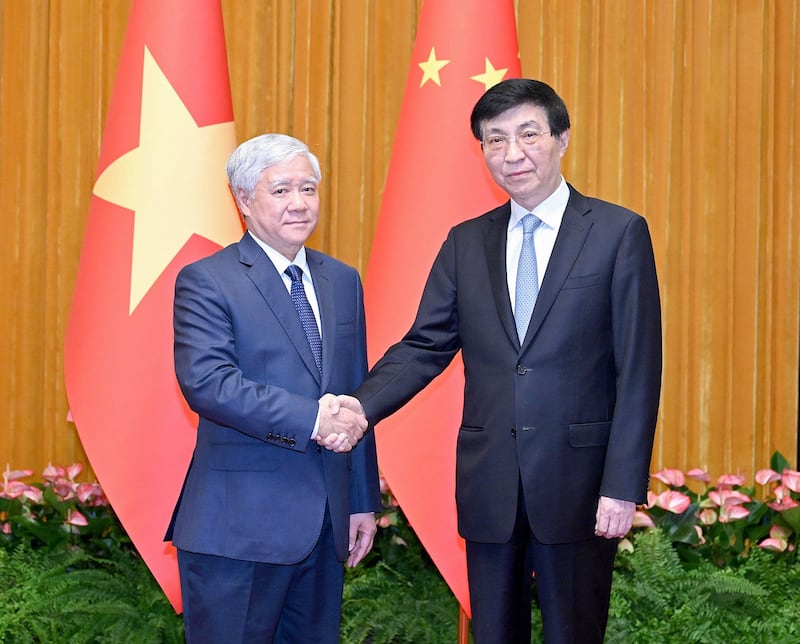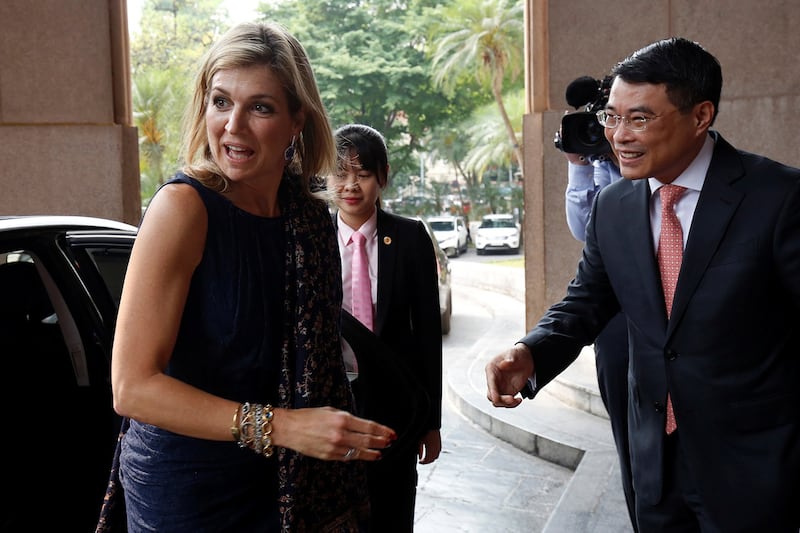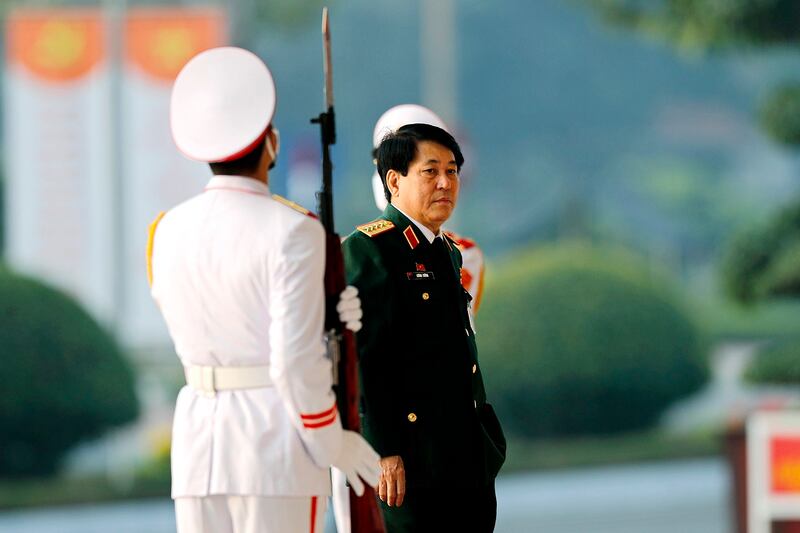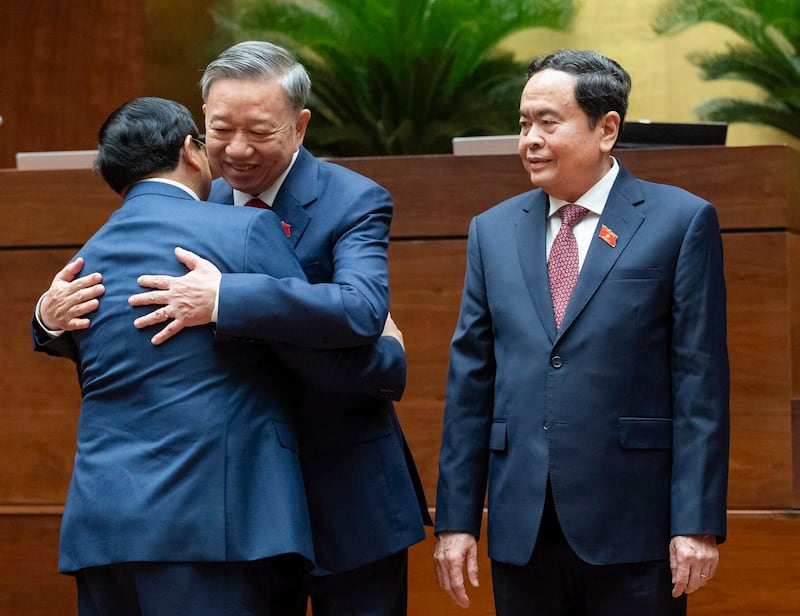The Communist Party of Vietnam has unveiled a slate of top appointments at its recent plenum that it hopes will turn the corner on months of bloodletting and bring a return to normalcy.
But things may not go so smoothly, as resentments smolder over new state president To Lam’s leading role in forcing six members to resign from the Politburo since December 2022 in an anti-corruption campaign that happened to eliminate his rivals. The new team also lacks economic experience at a time of uncertainty for Vietnam.
Lam, 66, the outgoing minister of public security, was elected by Vietnam’s National Assembly on Wednesday as the state president – a largely ceremonial post, but one of the "four pillars" of top political positions in Vietnam. The others are the general secretary, the prime minister and the head of the assembly.
The post could also set up Lam to succeed party chief Nguyen Phu Trong, who is thought to be in poor health, when his third five-year term ends in 2026.
There are four key implications to the latest maneuvers in Hanoi.

First, the forced resignation of Truong Thi Mai – the highest ranking woman, the head of the Communist Party of Vietnam (CPV) Secretariat – leaves only two candidates to succeed Nguyen Phu Trong as the CPV's general secretary at the 14th Party Congress under existing party rules: Prime Minister Pham Minh Chinh and Lam.
Mai was the 6th Politburo forced to resign in under two years, falling to the “Blazing Furnace” anti-graft drive that removed one third of the Politburo elected in January 2022.
Second, the newly elected members of the Politburo speak both to the CPV's insecurities and priorities – and the focus seems to be security over the economy.
Politburos are normally formed with a balance of interests, regions, and party or state backgrounds. Yet in this expansion, three of the four figures hail from the senior-most echelons of the party organization itself.
Bui Thi Minh Hoai, 59, now the only woman on the 16-member Politburo, heads the Central Committee’s Mass Mobilization Commission. From 2011-2021, she served as the vice chairman of the Central Inspection Commission, the body tasked with investigating corruption within the senior leadership.
Mass mobilization, propaganda and control
Do Van Chien, 62, the only ethnic minority on the Politburo, serves as the head of the Vietnam Fatherland Front, which oversees all unions, associations, officially-sanctioned religions, civil society organizations and elections. His job is to maintain party control.
Nguyen Trong Nghia was made the head of the Central Committee’s Propaganda Commission.
None of the three have significant or recent government or economic experience. All represent various aspects of party efforts at mass mobilization, propaganda and control.
Only one of the four new members has significant economic experience: Le Minh Hung 54, the son of former Minister of Public Security Le Minh Huong, who spent his early career in banking.
From 2011 to 2014, Hung served as the deputy governor of the State Bank of Vietnam, at a time when they were trying to clean up the country’s first major banking scandal. From there he was moved to be the deputy head of the Central Committee’s Central Office.
From 2016-2020, Hung was the governor of the State Bank, the youngest individual to hold that position. At the 13th Congress in 2021, he was moved back to head the Central Committee’s Central Office.

Hung will take over the Central Committee’s Organization Commission, which handles all mid- to senior-level party personnel appointments, an essential role ahead of the 14th Congress, slated for January 2026.
Hung is clearly a man to watch in the future, and is in a strong position to become the next prime minister.
Once again, no deputy prime minister was elevated to the Politburo, which has a dearth of economic experience.
The third implication involves the prominent role of the People’s Army of Vietnam (PAVN), with the promotion of Gen. Luong Cuong. The 67-year-old army officer took over the CPV Secretariat, which runs the party’s day-to-day operations, from Mai.
Cuong, as the head of the PAVN’s General Political Department, is the military’s top political commissar, which gives him the same rank and status as the chief of the general staff, the top operational commander.
Party army
Like in China, Vietnam’s military is a party army. It’s the armed wing of the CPV and legally bound to defend the CPV and the socialist system, ahead of the state. All officers over a certain rank are party members, and the military is the single largest source of party members.
Cuong both served in the CPV Secretariat and closely coordinated the General Political Department’s operations with it.
While replacing a civilian with a uniformed military official might seem like a violation of civil-military relations, in the Vietnamese system, it’s not seen as going against that norm, as the “party controls the gun.”
At the 9th Plenum, Cuong, who was seated on the dais to the left of party chief Trong, was in civilian attire. It has not been announced if he will retire from the military. The two deputy chairmen of the PAVN’s General Political Department are also members of the Central Committee.
The last military officer to run the secretariat was General Le Kha Phieu in April 1996, and he quickly went on to become CPV general secretary from 1997-2001.

One of the new faces to the Politburo is another military man, retired Col. Gen. Nguyen Trong Nghia.
Like Cuong, Nghia, 62, spent his entire military career in the general political department. At the previous party congress in 2021, Nghia, retired as the deputy chairman of the general political department and took over the Central Committee’s Propaganda Commission.
The bigger question is the degree to which the storied People’s Army will serve as an institutional check on Lam and the Ministry of Public Security. The army now holds three of 16 Politburo seats, or 19 percent.
The army’s recent arrest of a police official in the far northern city of Lang Son for suspected espionage for China served up a hint of bureaucratic infighting.
Likewise, there are now reports that the military's investigative services are looking into the corporate activities of To Dung, Lam's younger brother. Such an investigation into Xuan Cau Holdings could not go forward without the approval of party chief Trong, who heads the Central Military Commission.
Lam made enemies
This leads to the fourth implication: The recently concluded CPV 9th Plenum nominated Tran Thanh Man to replace Vuong Dinh Hue as the chairman of the National Assembly.
Man had been the vice chairman and is a rare southerner in the top Vietnamese political echelon, so his nomination makes sense.
But the nomination of Lam as president is raising eyebrows.
To some, it is evidence that Lam is being politically sidelined in the race for the top job of CPV general secretary. The National Assembly rejected him holding the security minister portfolio and the presidency, evidence of some pushback.
The Central Committee has pushed back against Lam’s preferred successor, Col. Gen. Luong Tam Quang, who did not get elected to the Politburo this month.
Deputy Public Security Minister Tran Quoc To, will become the acting minister of public security. To is the younger brother of Tran Dai Quang, the former minister and president who passed away in 2018. To is not an ally of Lam, and many in the Central Committee see him as a counter to the new president’s influence over the ministry.
Whoever becomes the minister of public security would have to be elevated to the Politburo, which would require an expansion to 17 members.

Nonetheless, holding the presidency doesn’t preclude Lam’s candidacy to be general secretary. Indeed, it could be an asset, burnishing the political resume of a man whose entire career has been within the ministry of public security. If anyone is angling to hold the top party and state positions simultaneously, as is the norm in China, it is Lam.
But there are increasing signs that within the Central Committee all are not pleased with his methodical takedown of his rivals under the “Blazing Furnace” campaign. In addition to the six Politburo members, some 20 Central Committee members have fallen this term, which didn’t make Lam a lot of friends.
While the election of four new Politburo members is an attempt to signal a return to political stability, the landscape ahead of the 14th Congress in January 2026 continues to look rocky.
Zachary Abuza is a professor at the National War College in Washington and an adjunct at Georgetown University. The views expressed here are his own and do not reflect the position of the U.S. Department of Defense, the National War College, Georgetown University or Radio Free Asia.
